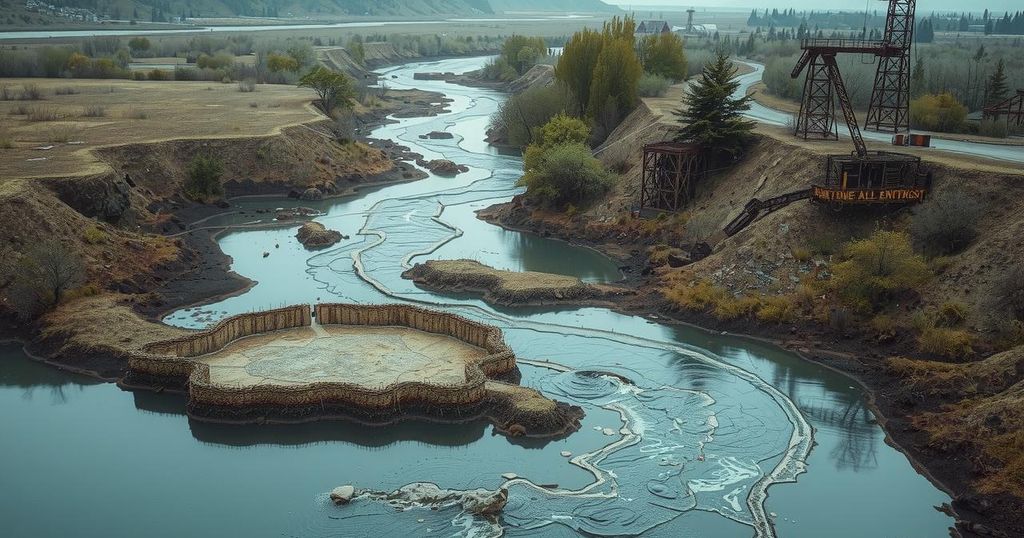A global study reveals significant toxic pollution in rivers across Spain, Ethiopia, Tunisia, Kenya, Nigeria, Pakistan, and India, with the Manzanares River in Madrid identified as the most contaminated European river. The research indicates that over 25% of the studied rivers pose health risks due to pharmaceutical contaminants, highlighting a pressing need for improved water treatment technologies to protect ecosystems and public health.
A recent global study has raised serious concerns regarding toxic pollution in rivers located in Spain, Ethiopia, Tunisia, Kenya, Nigeria, Pakistan, and India, thereby posing significant threats to ecosystems and public health. Analysis of over 200 rivers indicated unprecedented levels of toxic contaminants, with the Manzanares River in Madrid being identified as the most polluted river in Europe, highlighting alarming concentrations of harmful substances such as paracetamol and caffeine.
Research conducted by the University of York focused on water quality assessments from 258 rivers worldwide, revealing that more than a quarter exhibited pollution levels detrimental to both humans and aquatic life. This is particularly concerning for the Manzanares River, which serves as a crucial component of Madrid’s urban ecosystem and poses a significant threat to public health due to its toxic conditions.
The study, led by Dr. John Wilkinson, analyzed water samples from 1,052 locations across 104 countries, targeting 61 pharmaceuticals, ranging from antibiotics to antidepressants. The findings were alarming, indicating that 25.7% of the sampled rivers contained pharmaceutical contaminants at levels hazardous to aquatic organisms, which could disrupt their biological functions and contribute to the emergence of antibiotic-resistant bacteria.
While European rivers face toxicity, areas in Africa and Asia suffer from even more pronounced pollution issues. Nations such as Ethiopia, Tunisia, Kenya, and Nigeria report some of the most contaminated waterways, while Pakistan and India lead in Asia. The study emphasizes the critical need for enhanced investment in innovative technologies and improved treatment systems to address and mitigate the influx of pharmaceutical and chemical pollutants to our rivers.
This comprehensive study underscores the pressing concerns surrounding river pollution in various nations, indicating extensive pharmaceutical contamination. The alarming presence of toxic pollutants, especially in the Manzanares River, signifies a critical threat to global public health and aquatic ecosystems. Moreover, the need for increased investment in waste management and technological advancements to combat this pollution crisis is imperative.
Original Source: www.travelandtourworld.com




